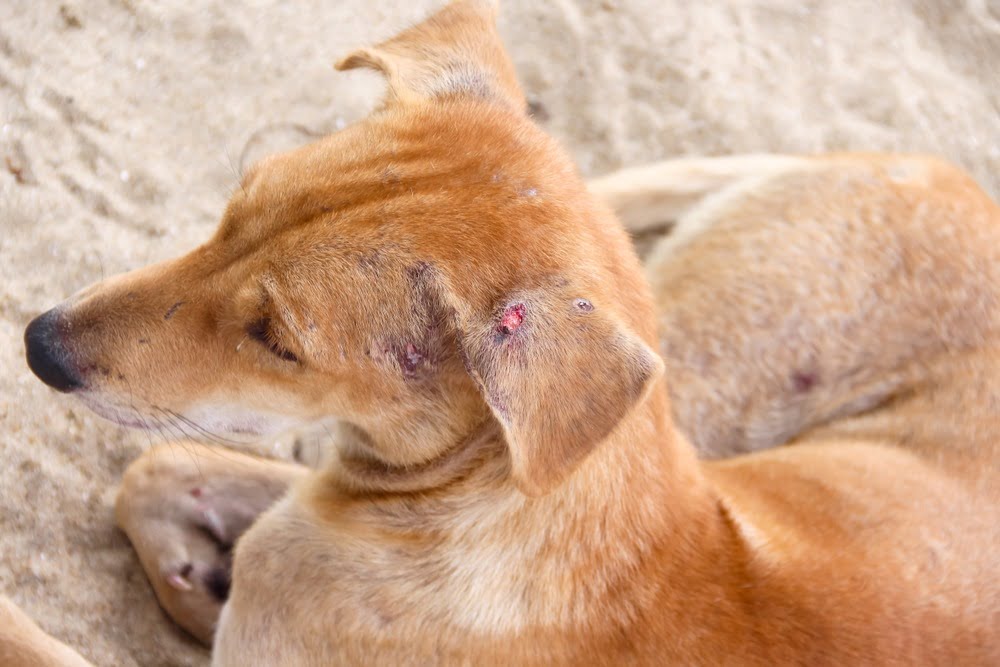
If you have any allergy skin dogs or itchy furry friends, you may wonder: which food is best for a dog with a skin allergy or what food to avoid for dog with skin allergies? It can be extremely unpleasant, hives, swelling, causing itchy skin, loss of fur, and red, irritated skin. However, flea allergy dermatitis, environmental allergy, and food allergies are the common causes of skin allergy.
But surprisingly, most of the time food is the main cause of allergy symptoms. For example – chicken, beef, wheat, peas, dairy, omega-3 sources, plant-based or insect proteins, etc. If you as a pet owner want to know the main causes of allergies in dogs, symptoms, and remedies then this content is for you. It will also help you to know which guideline is best for your puppy.
For your convenience, we have developed a guideline through detailed discussions with veterinary dermatology and nutrition experts. So that you will better understand your puppy’s healthy and normal life – what food to avoid for dog with skin allergies.
Skin Allergies in Dogs
Skin allergies are a common condition where a dog’s skin becomes itchiness, obsessive scratching, irritability, and overall discomfort due to an allergic reaction. It’s also known as allergic skin disease one of the causes of itchy skin in dogs. If your puppy has a skin allergy, that means they are sensitive to something that they come into regular contact with, for example: pollen, dust mites, certain foods, or chemicals found in grooming products, and so on.
Many times food can be one of the causes of allergy. As a pet owner, you must remember that there is nothing wrong with the diet for allergies( Other dogs can eat the same diet and have no problem). Moreover, it is the dog’s immune system that is overreactive to specific foods that trigger their allergies. You also need to determine which foods your dog is allergic to.
Causes of Skin Allergies in Dogs
Like us, dogs can be allergic to various substances, including air, plant particles, and food. These are called allergens. Dog skin allergies, also called allergic dermatitis. These are the most common types of allergies in dogs.
Here we will discuss the most common causes of dog skin allergies:
Flea Allergy Dermatitis
A flea’s saliva can cause an allergic reaction in some dogs. This is a skin allergic reaction to flea bites. Sometimes dogs are allergic to flea saliva. It can cause the skin to itch naturally – especially at the base of the tail. Sometimes you may find their skin becomes red, itchy, and inflamed.
You can easily see fleas, or find out flea dirt, which looks like black pepper on the dog skin surface. Dermatitis from fleas is the most easily treated. Veterinarians treat flea allergy dermatitis by applying a product that kills fleas before they bite.
Environmental Allergens
Atopic dermatitis (or atopy) is an inflammatory, dust, mold, and pollen can cause can originate from environmental allergens. It is a chronic skin irritant and is the second leading cause of skin allergies in dogs. Because this dog skin allergy is seasonal, it may only affect your furry friend during certain seasons or times of the year. Check your dog’s ears and paws to understand the signs of this environmental allergy.
In addition to this, may also appear around the eyes, ankles, underarms, wrists, muzzle, and between toes. According to experts, allergens pass through the lungs into the bloodstream when dogs inhale them and finally reach the skin. The cells in the skin are transferred to the lower skin layer. An allergen reacts with an antibody class that causes an environmental allergy.
Food Allergies
Like humans, if you find out your dog’s itchy skin, it can cause dog food allergies and sensitivities. Sometimes it can lead to scratching at their paws or ears. They may display gastrointestinal issues, as well. For example- diarrhea, vomiting, or a combination of both.
As a pet owner, there is an important distinction to be made between dog food allergies and dog food sensitivities. There is a gradual reaction to a specific ingredient such as chicken, dairy, pork, beef, egg, wheat, soy, and rice. It especially depends on your dog. By looking at their diet plan, you will know what food to avoid for dog with skin allergies.
skin allergy symptoms can range from itchiness and chronic infections in the paw or ear to vomiting and diarrhea. Additionally, if you can’t understand the situation of your dog then talk to your vet about which foods in your puppy’s diet can help them develop food allergies.
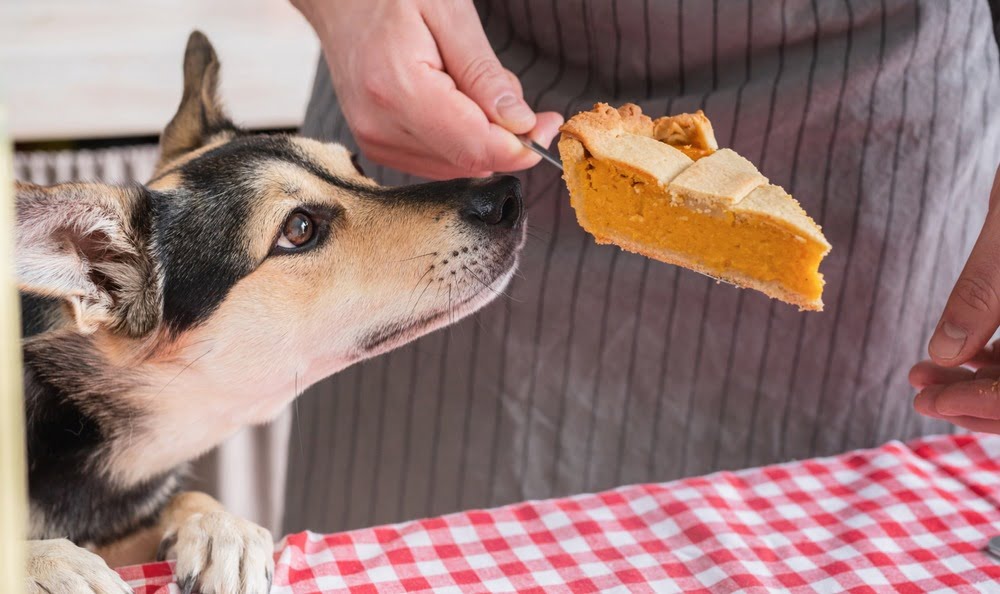
Signs And Symptoms Of A Skin Allergy
Skin allergies in dogs can cause different types of symptoms including-
- Sores
- Hair loss
- Excessive scratching
- Excessive licking
- Red, irritated, or flakey skin
- Rubbing of ears or face
- Biting or chewing the skin
- Rubbing or scooting on surfaces
In these allergies, you are not dealing with discomfort and itching of the skin allergy reaction. As your furry friend scratches, bites, and licks at his skin in reaction to the itching, there is a possibility that yeast and bacterial infection can enter through sores. In that time they need treatment.
What Food To Avoid For Dog With Skin Allergies
Food sensitivities or allergies vary from dog to dog – but many common animal proteins, dairy products, and vegetables can cause the most food-related allergies in your furry friend.
Here we are introducing you to some of the most common food allergens –
- Beef (34%) – If you feed your puppy limited food ingredients for years, it increases their chances of developing food sensitivities or allergies to one or more ingredients. One of the most common ingredients in dog food is beef, which may be the reason it is the most common food allergen.
- Dairy Products (17%)- Sometimes the dog has digesting lactose issues. In this digestive issues such as gas, diarrhea, and vomiting. A dairy allergy can cause these same symptoms, but allergies also often cause skin Redness of the skin, itchiness, and related symptoms.
- Chicken (15%)- As like beef, chicken is also a common protein ingredient for food allergies. This ingredient is really helpful for health development but when you add exclusively chicken-based diet foods for them, it may eventually develop an allergy or intolerance.
- Wheat (13%)- Another most common skin issue ingredient is a complex carbohydrate and wheat. Its symptoms are just like dry skin, rashes, and inflammation. If your pet suffers from this problem then take some action against it or talk to your vet they must help you.
- Soy (6%)- Some older research suggests soy can cause various health issues such as thyroid problems, growth problems, liver disease, and so on. But the experts have yet to come to any proper conclusions.
- Lamb (5%)- Sometimes pet owners switch to lamb after their dog suffers a beef or chicken allergy, but it can also trigger sensitivities or skin allergies for some dogs.
- Corn (4%)- Corn or corn by-products contain a small portion of nutritional value for every dog, but it’s a common ingredient for commercial dog foods. Sometimes their owner switches to a raw or almost-raw diet to avoid an allergic reaction in their dog.
- Eggs (4%)- Eggs can be an excellent non-meat protein ingredient for raw diets. It also develops their body and mind. But eggs the another cause for food allergy symptoms.
- Pork (2%)- Another well-known healthy protein is pork. It is a common ingredient in dog foods, but the incidence of allergic reactions in dogs is low.
- Rice (2%)- Not all dogs but sometimes a few dogs have skin issues from rice. So if your pup has these issues then switch them to grain-free dog foods.
Now you have proper knowledge of what food to avoid for dog with skin allergies. These ingredients are most commonly used in your pup foods. Food allergies can develop over time due to repeated exposure and your friend may have consumed a portion of food for a long time before an allergic response occurs.
Moreover, if they are allergic once, they will be allergic for the life stage. And you should always be careful to avoid feeding food with certain ingredients.
Difference Between Food Sensitivities and Food Allergies in Dog
Sometimes pet owners don’t understand whether a dog has a food allergy problem or a food sensitivity problem. What do you think?
What is the difference between food sensitivities and food allergies in dogs?
Dog food allergies involve an immune system. this immune system mistakenly considers a particular protein to be harmful and produces antibodies to fight it. As a result, the symptoms of allergy are seen. Such as itching, ear infections, skin rashes, gastrointestinal issues ( diarrhea, vomiting), and respiratory problems. In addition, allergies usually develop with repeated exposure to allergens.
The key difference between dog food allergy and dog food sensitivity is that the first one involves immune system processes but the second one involves a digestive or metabolic process of certain food components. That’s why, food sensitivities usually affect the digestive system. Its symptoms include- skin problems ( itching, redness), chronic ear infections, and gastrointestinal issues ( bloating, gas, diarrhea).
As a pet owner, it is more important to understand the difference between food allergies and food sensitivities in dogs.
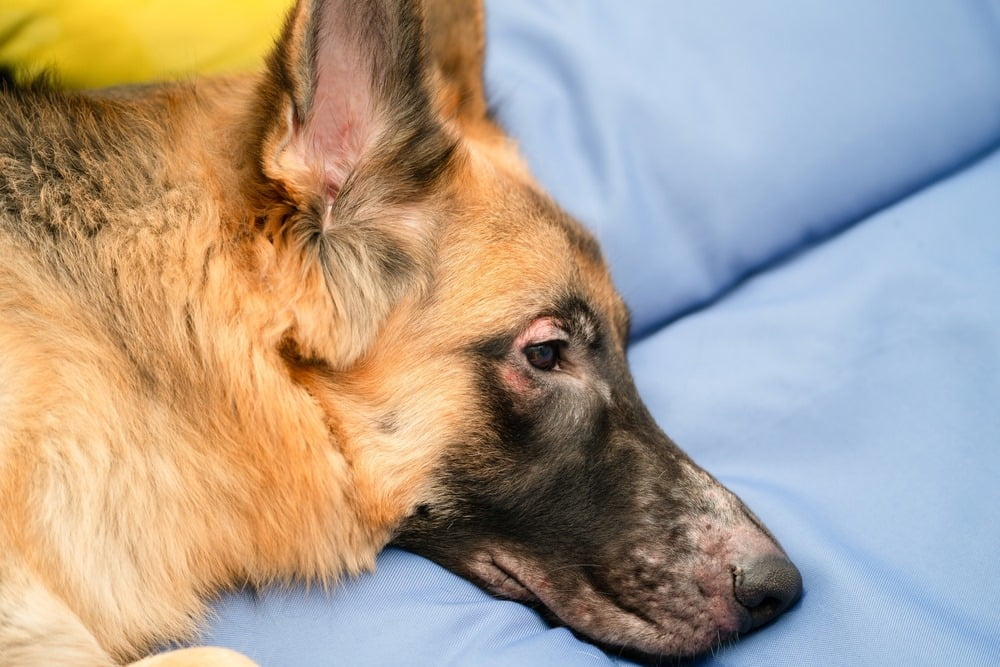
Signs of Food Allergies in Dog
Here we will include the most common symptoms of dog food allergies:
- Hot spots
- Hair loss
- Dry skin
- Itching
- Redness of the skin
- Repeated skin infection
- Swelling of the face or eyes
- Chronic ear infections
- Sneezing or reverse sneezing
- Gastrointestinal issues ( vomiting, diarrhea, soft stool, or gas)
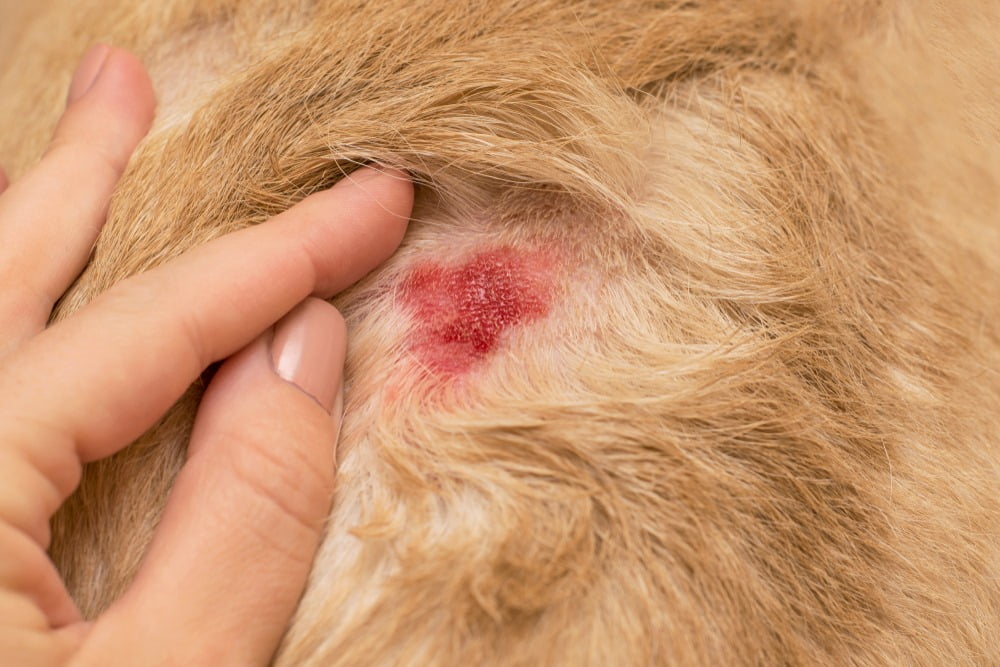
Signs of Food Sensitivities in Dog
Here we will include the most common symptoms of dog food sensitivities:
- Gas
- Vomiting
- Weight loss
- Mucus in the stool
- Blood in the stool
- Runny stools
- Gurgling stomach
- Gurgling stomach
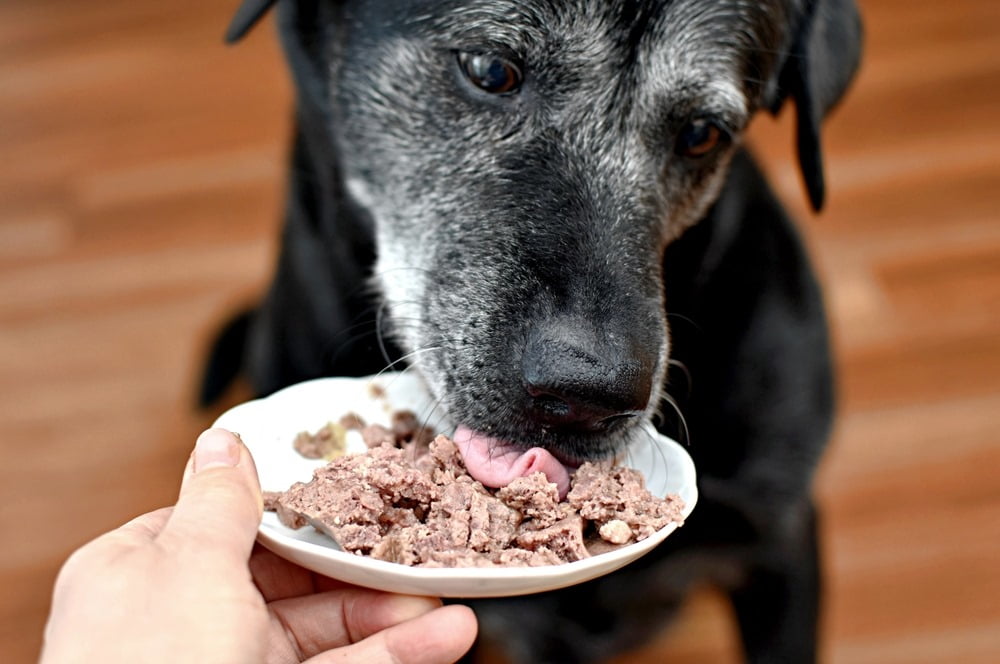
Connection Between Skin Allergies and Diet in Dogs
There are some key connections between skin allergies and diet in dogs:
Diet can play a vital role in the development of skin allergies in dogs. Sometimes dogs may have food sensitivities or allergies to certain ingredients in their diet, such as grains, dairy, wheat, or specific proteins like chicken, pork, or beef. When a dog consumes a portion of food that they are allergic to, then it causes various problems on the skin such as skin irritation, itching, redness, and inflammation.
In addition, switching to a hypoallergenic dog food that eliminates common allergens can help reduce skin allergies in dogs. This may involve feeding a limited ingredient diet with novel protein sources like venison or duck, or a hydrolyzed protein diet where the proteins are broken down into smaller molecules that are just like an allergic reaction.
If you don’t understand what to do for your pup in this situation, then it’s important to talk with a vet to properly diagnose and manage food allergies in dogs. They may recommend a proper diet trial to identify the specific allergen causing the reaction and provide guidance on selecting an appropriate diet for your dog’s needs. In some cases, supplements like omega-3 fatty acids and probiotics may also help support skin health and reduce inflammation associated with allergies.
Choosing A Nutritious Diet for Pup With Itchy Skin
Dog skin allergies or itching can be a frustrating and uncomfortable experience for your furry friends. A healthy diet can help them feel best and reduce skin issues. Here are the most important tips for you when selecting skin allergy dog food for your dog with sensitive skin:

Hypoallergenic ingredients: Avoid some specific protein ingredients just as chicken and beef, on the other hand, choose fish or venison. These proteins always help to reduce your pup’s skin allergies and can help calm your dog’s skin.
Fatty acids: Omega 3 fatty acids are important for healthy skin and a shiny coat. You can also use fish oil, coconut oil, or flaxseed on your dog’s food to treat skin problems.
Grain-free options: Most of the time dogs can’t handle grains like wheat, soy, or corn. If your pet is one of them, then try a grain-free diet that uses alternative carbs like peas or sweet potatoes.
Natural ingredients: Avoid artificial additives and preservative products that could irritate your puppy’s skin. Give them food with natural ingredients so that no issue is caused to their skin.
Talk with your vet about the proper diet for your dog or you may look at petpadic.com, we are also here to help you find the best dog food for allergies. Now check out our dog food for skin allergies today.
What to Look for When Purches Food Skin Allergy
Many dogs suffer from discomfort due to skin allergies. It is possible to solve the problem by taking various precautions while buying food and avoiding which food the dog is allergic to. The following precautions to be taken while buying food are bellowed-
- All-Natural ingredients: Always feed your dog natural food to ensure it’s allergy-free dog food. It doesn’t mean a raw diet, it means ensuring that the ingredients are natural, unadulterated ingredients.
- Preservative-Free Ingredients: If your dog food is preservative-free, it will reduce the risk of skin diseases as well as get rid of various skin problems. Preservative dog foods are processed at high temperatures. Moreover, even though their main ingredients are natural, they undergo processing, and then all the natural nutrients are changed. So considering the good health of dogs we should give preservative-free food.
- Grain/Gluten Free: Grain and gluten are the most prevalent food allergies. More than an allergy, they are components that can be difficult for dogs to digest, resulting in gluten/grain intolerance – which means their body is unable to break down these compounds.
- Single-Ingredient: The dog has amazing single-ingredient fruits that are fat-separated and freeze-dried. These foods come in 4 different flavors: apple, coconut, banana, and beetroot. So you’ll still have options if your pet is allergic to one of them.
Now you know all the things that you need to avoid buying dog food. So, as a pet lover, it’s important to understand those things.

Best Dog Food for Skin Allergies
Your furry friend is your little one. So you should need to know if they suffer from a skin allergy problem and take action against this issue. The good news is that now we will discuss an important thing which is the best dog food for skin allergies. If you select the right food for the right time then you may reduce skin allergy problems from dogs.
- Hydrolyzed Dog Food –Hydrolyzed foods are the best option for skin allergy dogs. Because the protein supply has been broken down into pieces, so it can’t recognize easily an immune system.
- Novel Protein Dog Food- Another best option is novel protein food for dogs. Because this protein has duck, fish, venison, lamb, rabbit, crocodile, and kangaroo. Although these proteins are uncommon for commercial dog food. But it’s a high possibility that your dog has not tried it before and may is not allergic.
- Hypoallergenic Dog Food- Hypoallergenic foods omit an ingredient that is known for skin allergy reasons. This type of food is grain-free, and also, it also contains novel protein sources, such as venison or duck, and limited ingredients to reduce dog skin allergies.
- Homemade Dog Food- One of the most favorite and trustworthy formulas is homemade dog food for every pet lover. Every pet parent can easily manage this type of fresh food at home. On the other hand, if you can identify which ingredients are not suitable for your pet then you can easily avoid that ingredients. Such as- if your dog is allergic to chicken, you may be switching to a beef or salmon-based alternative. It’s important to choose the right food for your furry friends.
- Wet Dog Food- Wet dog food is another best option for your sensitive stomach dog. It’s specially formulated for sensitive and allergic dogs to easily digest food.
Dog Feeding Process With Skin Allergies

If your dog has skin allergies or sensitivities issues it can be more challenging for them. So, the first thing you should do to identify which food will be allergic to. If it may not identify then talk to your vet that your dog does have food-sensitive issues or anything else, they must help you to find out the right food for allergy would be the second step.
This is a very common issue but if you treat them with a proper guideline they may recover soon. Since many pet food brands contain almost the same ingredients, you should identify allergic foods and eliminate them from the diet.
FAQ
What Is The Main Cause of Skin Allergies in Dogs?
Now you will know what food to avoid for dog with skin allergies but what is the cause? Dog skin allergies have many causes, but when you need to know the common cause of skin allergies, we talk about environmental or food allergies. Because both are common for sensitive dogs. Environmental allergies are usually seasonal and the allergens are pollen, dust mites, mold spores, flea bites, and certain chemicals found in grooming products or household cleaners. On the other hand, some food ingredients or proteins have skin issues. Those foods are beef, chicken, dairy, wheat, and soy.
Which Dog Breeds Are Predisposed to Skin Allergies?
If you are a pet lover then you should need to know which dog breeds are more prone to skin allergies or sensitivities. It’s quite difficult to definitive conclusions about dog breeds more prone to food allergies. Here are some dog breeds list, that are more prone to skin allergies.
- Labrador Retrievers
- Golden Retrievers
- Boxers
- Bulldogs
- Dalmatians
- Pugs
- West Highland White Terriers
- Shih Tzus
- Cocker Spaniels
- German Shepherds
- Bichon Frise
- Boston Terrier
- Chinese Shar-Pei
- Dachshund
It does not mean that all breeds are guaranteed to develop a sensitive food allergy, but it is more helpful and important for pet owners to know so they can easily start feeding their furry friends a proper diet early on.
How Do I Know If My Dog Has A Skin Allergy?
When your furry friends are constantly chewing, scratching, or licking, themselves and their skin is repeatedly infected, redness of the skin, or irritated, then it is called a skin allergy. The best way to identify what your dog is allergic to is to work with your vet, although switching their diet plan to a species-appropriate raw diet. It may help them as well.

Can A Raw Diet Help with Skin Allergies in Dogs?
Obviously! some ingredients for dogs to be allergic to, no grains to cause inflammation, and if you give them high-quality protein they can easily digest. In this case, a raw diet is the best choice to help dogs with skin allergies. Some ingredients like turkey, beef, and chicken recipes all come from single protein sources, creating a better food for dogs who are not allergic to those proteins.
Dog With Skin Allergies Home Remedies?
Home remedies are always available, easy to manage, and fresh. As a pet lover, it’s a concern if your puppy is suffering skin issues for some protein ingredients. At this time, it’s more important to ensure home remedies are safe and helpful for your dog’s specific condition. Here are some common home remedies for treating skin allergies in dogs:
- Oatmeal bath
- Apple cider vinegar rinse
- Coconut oil
- Aloe vera gel
- Chamomile tea compress
- Fish oil supplements
- Probiotics
Best Affordable Dry Puppy Food
Things to consider when it comes to choosing food for your little cute dog are their size (small breed or large breed) and age as well you also should consider a diet rich in quality protein, vitamins, antioxidants, fat, calcium, carbohydrates, and minerals. That’s why they can be healthy and strong. Read more…
Now It’s High Time To Identify The Right Food
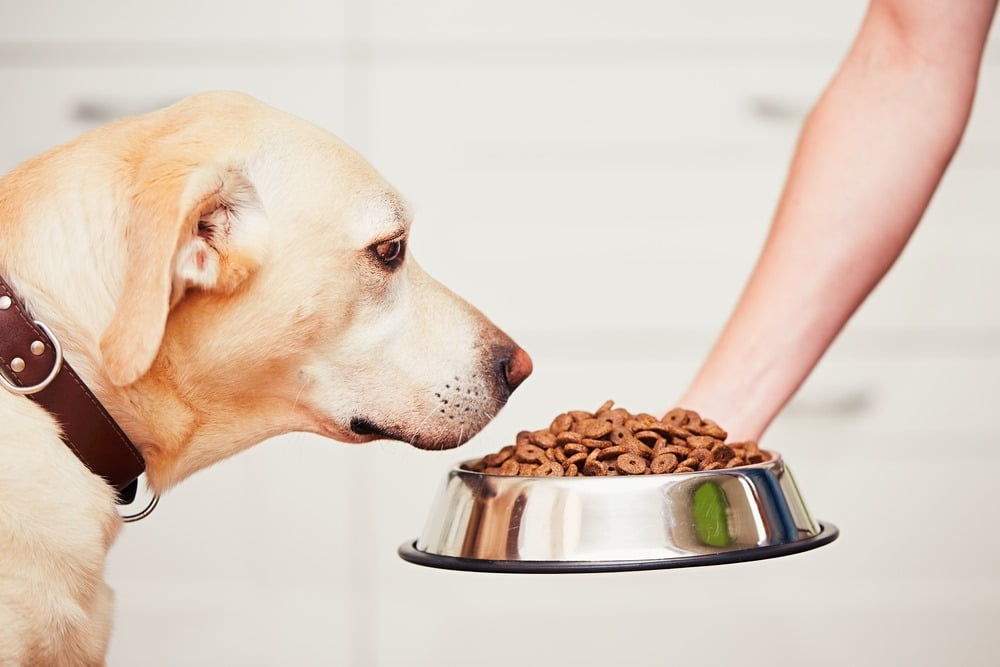
Since you may know what food to avoid for dog with skin allergies and how to protect them properly. As a pet parent, it’s really important to find out the dog skin allergy reasons and the best dog food for skin allergies to reduce skin issues. Here you already learn everything you may need to know, now it’s high time to apply the things and identify the real cause of dog skin allergies.
Because your puppy has different solutions for different types of skin allergies (Flea allergy dermatitis, Environmental allergens, Food allergies). Environmental and food allergies are the main reasons for skin allergies, so if you know what food to avoid for dog with skin allergies then you may solve your furry friend’s problem. Otherwise, you may talk to your vet as soon as possible to identify the problem and proper guidelines for them.
